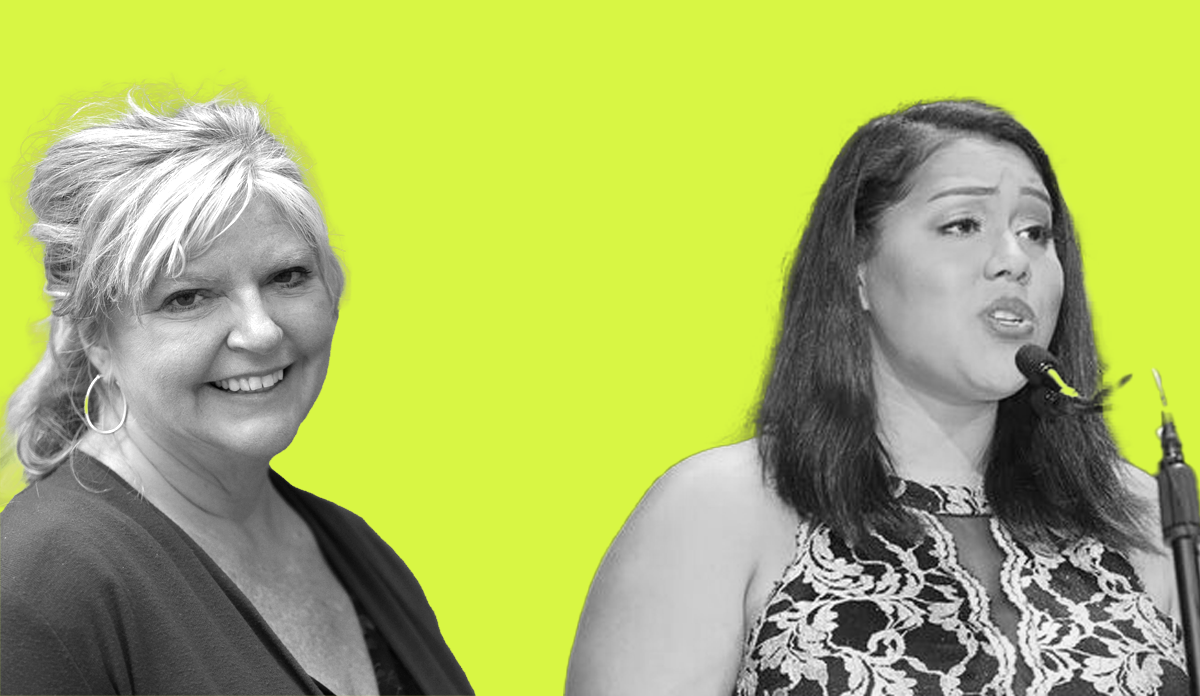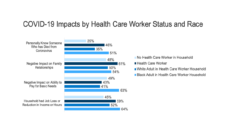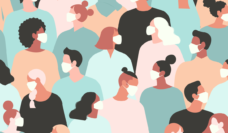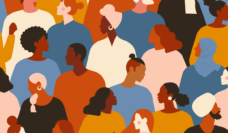Public Health Post: What has been the most challenging obstacle for frontline workers and for you during the pandemic?
Lori T. Freeman: Local public health started the pandemic at a deficit because over the past decade we’ve lost over 20% of our workforce due to sort of disinvestments in our nation’s public health system. We came into this pandemic lacking resources, human and financial, which made the response to the pandemic that much more challenging. Then, the politicization of Covid-19 increased those difficulties even more.
Elizabeth Peralta: We [grocery store owners] were some of the last people to get personal protective equipment (PPE). Hospitals budget for those items, but grocery stores usually only provide PPE to the deli workers, and that’s normally just gloves. We still stayed open to serve the public. Then we faced increased scrutiny by the Department of Labor for our sanitation practices. We wanted to keep our stores sanitized, but sometimes that can cost up to $7,000.
What differences have you noticed between the treatment of medical and non-medical frontline workers during the pandemic?
Lori T. Freeman: People have a natural relationship with their personal healthcare provider, and they understand the profession. However, the local health department is less visible, so people don’t recognize the prevention work being done behind the scenes. Unfortunately, that means the public health workers are left out of the conversation.
Elizabeth Peralta: Frontline workers that are not medical are often seen as these amazing, gritty people. No, you’re really saying that these are people who are low income and are used to suffering. So you’re going to let them continue to suffer, because they’re used to it.
How has the perception of non-medical frontline workers changed since the Covid-19 pandemic?
Lori T. Freeman: I’m hoping it’s still changing. The grocery, pharmacy and public health workers have not once shut their doors during a pandemic. They’re working together to protect their communities. So, I’m hopeful after this pandemic people will understand that there’s a whole really important group of professions that are working to keep our community safe and healthy behind the scenes.
What are some of the concerns that frontline workers have that you feel need to be publicly addressed?
Lori T. Freeman: We need to pivot from this moment of difficulty and turn it into a moment for advocacy. We need to rebuild public health and its infrastructure, to reinvest in strengthening our local health departments so that they’re prepared for future emergencies. For months, the pandemic response ignored public health recommendations. Public health has to be the backbone of any response that involves infectious disease of this level and certainly this pandemic.
Elizabeth Peralta: Grocery store owners are often immigrants. Many have confessed their hesitancy about getting vaccinated and seeking resources, because they fear ICE. We have to support the people that feed our communities, by empowering minority owned businesses, providing information in multiple languages, building relationships with our small grocery owners.
Why didn’t we pay attention to frontline workers before the pandemic?
Lori T. Freeman: Public health works best when it’s working behind the scenes. I think what we have to do a better job of is sharing why people are healthy and safe and secure in their communities. Kids should be learning that right beside a doctor and a nurse is a public health official keeping you safe and healthy. We have a lot of work to do to make people understand that.
Elizabeth Peralta: We don’t know our small grocers like we should. Grocery stores could give birth to really great social programs, but they need government and community support. We could host summer programs and internships to teach children about the food industry. We just have to stop acting like medicine is the only noble profession. Grocery store workers can be heroes too.
Photos courtesy of Lori T. Freeman and Elizabeth Peralta














